Latest News
Kitchen Chat and more…
Kitchen Chat and more…
The White Horseman (Rev. 19)
After an exhausting, eventful life, the wish to finally find rest is perhaps as old as humanity. The most common expression of it can be found in our cemeteries. Time and again we see the words chiseled into headstones: “Rest in Peace,” or even “Here Rests…” As if all is past—no more troubles, sorrow, tears. Is it really that simple? Or is this wishful thinking?
One day Rudolf Steiner was walking in a cemetery with a friend. As he was reading the constantly repeated words on the headstones, his commentary was: “First of all he is not here; second of all he is not resting.” In other words, the deceased evidently are having a very different life than we imagine or wish.
The Book of Revelation of John helps us to get to know the sobering reality of the spiritual world. Instead of finding comfortable rest or an eternal paradise we are confronted with a world of crisis and battle—just like the world we have daily around us and which we would rather not see.
The word of the white horseman is as a sword that strikes humanity and causes separation. With the staff of iron He reigns as shepherd and warrior at the same time. Christ is more than the gentle shepherd of a flock of sheep, the way He is so often represented in tradition. He is the shepherd who leads humanity to the moment when we are irrevocably confronted with ourselves and the consequences of our deeds. He is the shepherd who wants to wake us up: do not fall asleep with the promises of false prophets who delude us with hopes of an earthly paradise or eternal peace.
Wake up to Him who will gather the harvest of the Earth. We—humanity—we are the harvest. The harvest is His alone.
–Rev. Bastiaan Baan, October 25, 2020.
Looking for a Refuge (Rev. 12)
A desert is usually a place of loneliness and hardship, a wilderness. Rarely is there water, rarely a sign of life. In early Christianity, the so-called desert fathers lived as monks in the desert for many years, sometimes for the rest of their life. They had to fight a lonely battle with themselves. The enemy—no robbers and looters, for there was nothing to rob or loot—was the army of demons they were confronted with.
Although in our time we don’t normally live in such lonely places, our cities often have the nature of deserts: a dead world, built up of stone. In these modern deserts everyone is thrown back onto himself—in our time more than ever. “Everyone for himself…” is the part of the old saying that we hear around us in every possible version. Strangely enough the second part of the saying is usually lacking: “…and God for us all.”
There is no other way—we all have to find our own individual path through the desert. But loneliness is not only inevitable; it is also necessary in order to form a strong, autonomous I. Our desert is the world in which we live. The dragon in our desert is the inhumanity with which we are confronted day in day out. Is there a place of refuge, or do we only have to stand up until we fall? Can we, like the woman in the desert, develop wings to flee to a safe place?
Our wings are made by the strength of our prayer. Recently, a well known physician expressed this idea in everyday language with the words: “The most powerful medicine against depression is prayer: it lifts up the soul.” Indeed, every true prayer, every real meditation, gives wings to the soul, so that we can find a spot where we can take shelter—a spot that was prepared for us by God.
This does not mean that it frees us from the opposing power, on the contrary. But every true prayer brings us to a place where the Spirit assists us, helping us to remain upright in our lifelong struggle—lonely, but not alone.
–Rev. Bastiaan Baan, October 18, 2020

